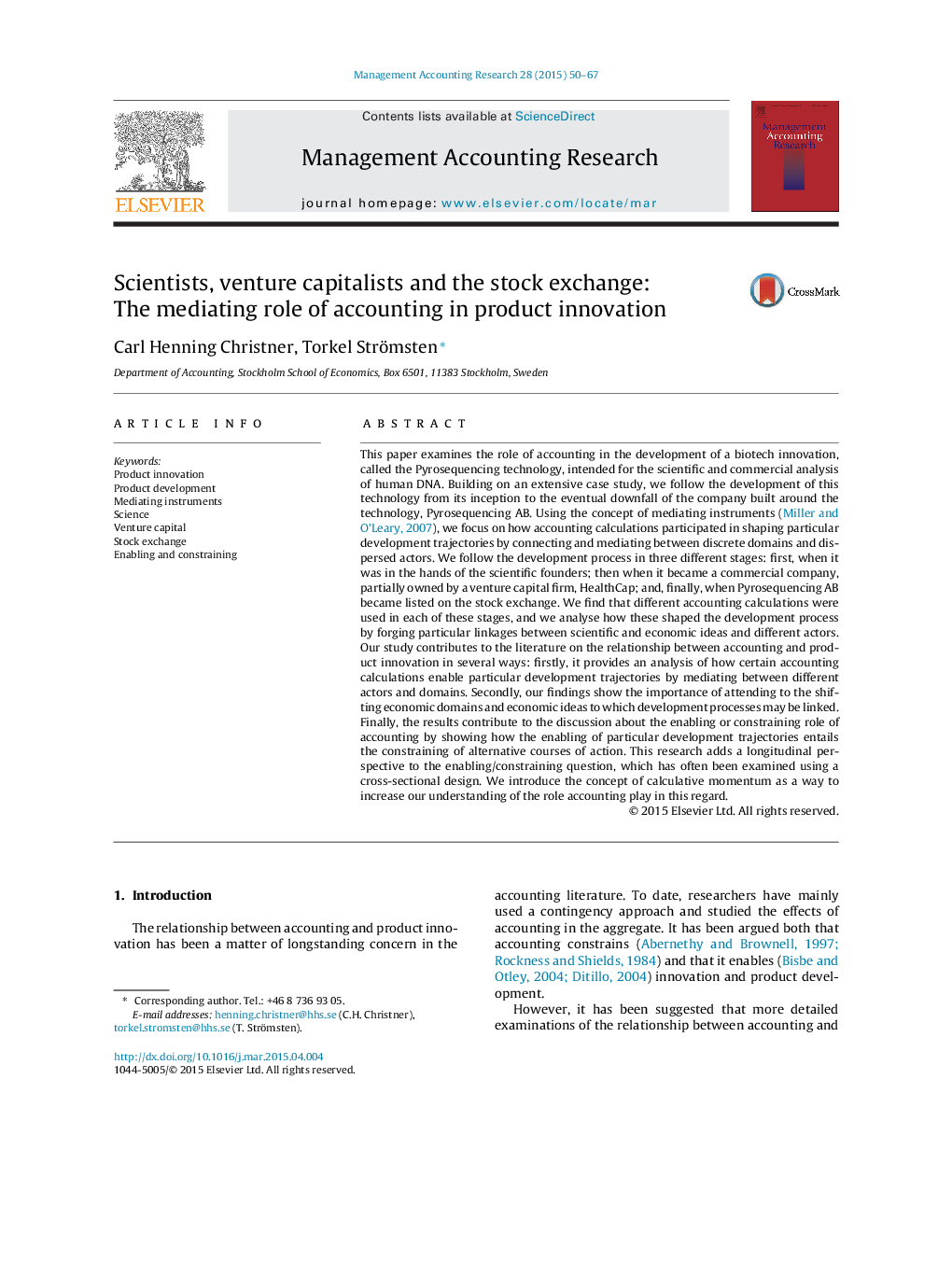| Article ID | Journal | Published Year | Pages | File Type |
|---|---|---|---|---|
| 1003439 | Management Accounting Research | 2015 | 18 Pages |
•We show how accounting calculations play a mediating role in innovation processes.•Accounting calculations connect actors from different domains throughout an innovation process.•The development process was linked to different economic ideas as ownership changes over time.•Accounting enables and constrains an innovation process.•Some trajectories were seen as more valuable than others due to calculative momentum.
This paper examines the role of accounting in the development of a biotech innovation, called the Pyrosequencing technology, intended for the scientific and commercial analysis of human DNA. Building on an extensive case study, we follow the development of this technology from its inception to the eventual downfall of the company built around the technology, Pyrosequencing AB. Using the concept of mediating instruments (Miller and O’Leary, 2007), we focus on how accounting calculations participated in shaping particular development trajectories by connecting and mediating between discrete domains and dispersed actors. We follow the development process in three different stages: first, when it was in the hands of the scientific founders; then when it became a commercial company, partially owned by a venture capital firm, HealthCap; and, finally, when Pyrosequencing AB became listed on the stock exchange. We find that different accounting calculations were used in each of these stages, and we analyse how these shaped the development process by forging particular linkages between scientific and economic ideas and different actors. Our study contributes to the literature on the relationship between accounting and product innovation in several ways: firstly, it provides an analysis of how certain accounting calculations enable particular development trajectories by mediating between different actors and domains. Secondly, our findings show the importance of attending to the shifting economic domains and economic ideas to which development processes may be linked. Finally, the results contribute to the discussion about the enabling or constraining role of accounting by showing how the enabling of particular development trajectories entails the constraining of alternative courses of action. This research adds a longitudinal perspective to the enabling/constraining question, which has often been examined using a cross-sectional design. We introduce the concept of calculative momentum as a way to increase our understanding of the role accounting play in this regard.
